Updated for 2020: 40+ Resources to Promote Speaker Diversity in STEM Fields
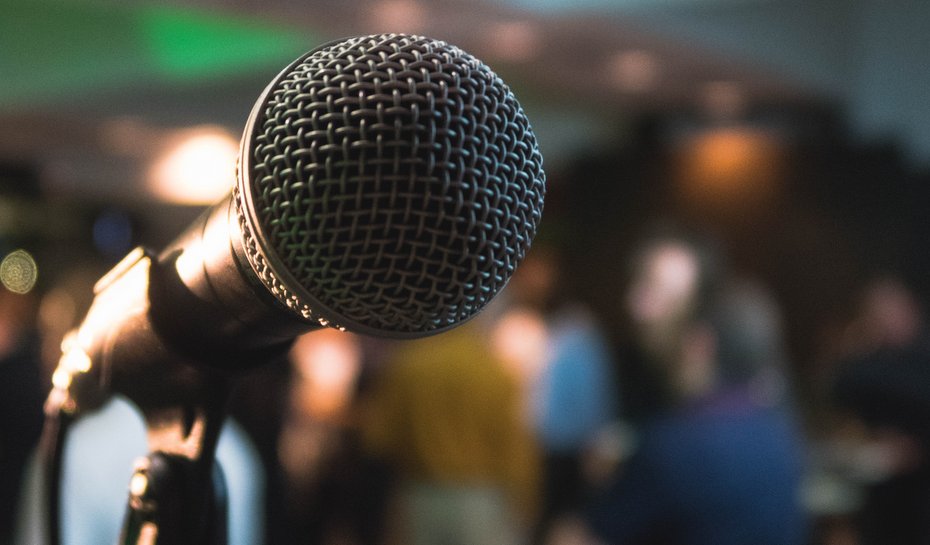
[Resources updated September, 2020]
How many times have you attended a conference and noticed that the panels and keynote speakers were a fairly homogeneous crew that didn’t represent the diversity of the audience?
This happens much more frequently than it should these days. One of the most noted imbalances is when meetings feature only men behind the microphones. This has led to the creation of terms such as “manels” (all male panels); Female Conference Speaker Bingo (“a bingo card full of excuses for not having more female speakers at STEM conferences”), and the “Congrats, you have an all male panel!” Tumblr page.
Scientific articles have quantified speaker imbalances across STEMM (science, technology, engineering, math, and medicine) disciplines with tables and bar charts and scatter plots. While the numbers show that progress is being made, they also show there’s still a long way to go.
Imbalances in speaker diversity in STEMM stifle advancement in our fields. Limited representation results in limited viewpoints and perspectives. It mutes creativity, innovation and growth.
Promoting a broad range of voices that are diverse in gender, ethnicity, experiences, expertise, and approaches strengthens our future. Diverse voices at lecterns provide diverse role models for the next generation of scientists. Diversity provides richer networking and collaborations, advancing everyone’s careers fairly, along with advancing our fields.
This list of resources features a wide range of experts in STEM fields. It is designed to assist conference organizers in promoting more diversity across panels, keynote speakers, boards, committees and collaborators, and to help journalists identify new subject matter experts. Some of the databases have extensive vetting criteria and include Nobel Laureates. Some lists include self-nominated experts.
Feel free to copy, share, and spread these lists far and wide. Please share resources that have been overlooked. Let’s hope this list – and these issues – seem quaint and out-of-date in the near future.
Speaker Resources (Listed alphabetically)
- AcademiaNet (Established by The Robert Bosch Stiftung and Spektrum der Wissenschaft, the Swiss National Science Foundation SNSF took over management in 2020)
“A database of profiles of more than 2,800 female researchers from all parts of Europe, and beyond. Rigorous selection criteria include outstanding scientific qualifications, academic credentials and independent leadership activities.” - All Raise Visionary Voices Speakers Bureau
“Features nearly 1,000 extraordinary female or non-binary founders, investors, and operators from across the venture-backed tech ecosystem who are visionary leaders and domain experts.” - Databases of Databases of Diverse Speakers in STEM (2018 Georgia Tech Diversity & Inclusion Fellow project)
“A web resource where conference, workshop, and panel organizers can locate diverse STEM experts to speak at their event.” Extensive Google Doc of databases and resources. - Directory of Women in Machine Learning
A directory to look for invited speakers, area chairs, conference committee members, etc. (self-nominated directory) - Diversity Database – Women in Engineering Biology (Engineering Biology Research Consortium, EBRC)
“EBRC encourages organizers of scientific meetings, scientific review panels, and university symposia/lecture series to have a balanced representation of women and men.” The site offers a range of resources that promote diversity and inclusion. - Expert Women in Life Sciences, WILS (EMBO)
“The database aims to help scientists, universities, research institutions, political institutions, conference organizers and journal editors to identify appropriately qualified women scientists: as candidates for professorships and other positions; to speak at conferences and in seminar programmes; to participate in advisory groups, on monitoring panels, committees and commissions; to review manuscripts, to write commissioned reviews and to serve on the editorial boards of journals.” - Folks in GCB (Genomics, Computational biology, and Bioinformatics)
“A self-nomination list for individuals from groups that are underrepresented in genomics, computational biology, and bioinformatics. (e.g., women, racial or ethnic minorities, members of the LGBTQ+ community, veterans, among others.” - Request a Woman in STEMM (500 Women Scientists)
“A resource for journalists, educators, policy makers, scientists, and anyone needing scientific expertise.” Global vetted expertise that ranges from algebra to zoology. - Speaker Database: Women in Healthcare (Rock Health)
“A public database of leading women speakers to help get more talented women on stage.” - Speakers List, Diversify STEM Conferences
“A list of prominent underrepresented minority scientists across every field of STEM.” - Superstars of STEM (Science & Technology Australia)
Australian women employed in a range of roles in STEM who are highly visible public role models. - Women in Biology Speakers List (ASCB and Cold Spring Harbor Laboratory)
Created to give more women a voice at scientific conferences and in the media, specifically on topics related to biomedical and biological research. - Women in BrainStim
“The database can be used to help conference organizers, journal editors, universities and other institutions to identify appropriately qualified female scientists to speak at conferences, join editorial boards, participate in advisory groups and on committees.” - Women in Cell Biology (WICB) Speaker Referral List (American Society for Cell Biology, ASCB)
“An extensive list of speakers, categorized by research area, who have won major awards, given Symposium talks at ASCB meetings or who have organized Minisymposia in their respective research areas.” - Women In Neuroscience
“The aim of the … Repository is to help you identify and recommend female neuroscientists for conferences, symposia or collaborations.” - Women Speakers List and Minority Speakers List, (American Physical Society, APS)
“Names, contact information, and talk titles of physicists who are willing to give talks on a variety of subjects. ‘Minorities in physics’ refers to Hispanic American, African American, and Native American Speakers.” - Women in Technology Speakers Bureau (Women in Technology, WIT)
“(WIT) speakers are experts in their fields and can offer informative and timely presentations on a wide range of topics. We welcome requests for specific speakers, or we can help you identify a speaker who would be a good match for your organization.” Topics include cloud computing, cybersecurity, enterprise systems, entrepreneurship, the Internet of Things, and technology policy.
Professional Speaker Bureaus
- Female Speakers on Science (selected filters) (Speaker’s Corner)
- Inspiring Women of Color in STEM Careers; Female Pioneers in STEM; Most Powerful LGBTQ People in Tech (All American Entertainment (AAE) Speakers)
- STEM (Great Black Speakers)
- STEM Speakers (Lavin Agency)
More Resources
- 100 inspiring Black scientists in America; 100 more inspiring Black scientists in America (Antentor O. Hinton Jr., CrossTalk Blog, Cell Press)
- 100 inspiring Hispanic/Latinx scientists in America (Christina Termini, Cell Mentor, Cell Press)
- 21 Technical Women Speakers for your Next Conference, or Manel! (Angie Chang, Girl Geek X)
- 30 Black Women Leaders in Tech #BlackHistoryMonth
- 500 Queer Scientists
A visibility campaign for LGBTQ+ people and their allies working in STEM and STEM-supporting jobs. - A List of Female Technology Policy Experts (Susan Hennessey, Lawfare)
“A list of female experts to talk to when assembling panels, researching, or reporting on issues at intersections of technology, the law, privacy, civil liberties, and national security. … In order to be fully inclusive and reflective of the community, this list also includes technology policy experts who identify as genderqueer, non-binary, or otherwise.” - Anneslist
“Highlighting female systems neuroscientists … You can nominate yourself or a colleague.” - Diversify Chemistry
Directory to help identify diverse chemists for hiring, seminars, colloquia, and awards. - Expert Women in Microbiology (Microbiome Digest – Bik’s Picks)
“A list of hundreds of awesome women in the fields of microbial ecology, microbiome, pathogenesis, microbial genomics, bioinformatics, probiotics etc.” Google doc list - Here are 592 women in the UK who could speak at your tech event (Charlotte Jee and Hannah Williams, Computerworld UK)
- Innovation Women
More than 1200 female entrepreneurial, technical and professional subject matter experts. - TED Playlist: Talks by Brilliant Women in STEM
- Think there aren’t qualified women in tech? Here are 1,000 names. No more excuses. (Melanie Ehrenkranz, Mic)
- Women in Data Science (WiDS)
Line-up of data science experts and thought leaders at WiDS Stanford 2020 - Women Tech Speakers & Organizers (Fempire on GitHub)
A list of women tech speakers & organizers. “Add yourself or others”
Even more resources
- Bringing STEM Guest Speakers into the Classroom (Amber Osuba, EVERFI, Inc)
- GlamSci
“At GlamSci, we are dedicated to helping disadvantaged men and women into careers and education in STEM. GlamSci’s vision is to take STEM out of the classroom scenario, putting it back into the local community, giving people the reins to control their own educational journey by guiding them through STEM education, building trust and confidence, and get them involved in the world of endless possibilities that a career in STEM promises.” - Million Women Mentors
“A movement to spark the interest and confidence of girls and women to pursue and succeed in STEM careers and leadership opportunities through the power of mentoring.” - Recognizing Women Leaders in Fire Science – Revisited (updated list, Fire 2018, 1(3), 45.)
- Skype a Scientist
“Want to talk to a scientist? You’ve come to the right place.” - Ten Simple Rules to Achieve Conference Speaker Gender Balance, (Martin JL (2014) PLoS Comput Biol 10(11): e1003903.)
- USA Science & Engineering Festival: Nifty Fifty Speakers
- Women in STEM: A Guide to Bridging the Gender Gap (Maryville University Blog)
- Women in STEM Resources
A repository of peer-reviewed research and resources discussing the challenges facing white women and men and women of color in science.
Some of the many scientific journal articles on speaker diversity in STEM (most recent first)
- Suggestions for Improving Invited Speaker Diversity to Reflect Trainee Diversity. Hagan AK, Pollet RM, Libertucci J. J Microbiol Biol Educ. 2020 Apr 10;21(1):21.1.22.
- Association Between the Proportion of Women on a Conference Planning Committee and the Proportion of Women Speakers at Medical Conferences. Lithgow KC, Earp M, Bharwani A, Fletcher S, Ruzycki SM. JAMA Netw Open. 2020 Mar 2;3(3):e200677.
- Trends in the Proportion of Female Speakers at Medical Conferences in the United States and in Canada, 2007 to 2017. Ruzycki SM, Fletcher S, Earp M, Bharwani A, Lithgow KC. JAMA Netw Open. 2019 Apr 5;2(4):e192103.
- Request a woman scientist: A database for diversifying the public face of science. McCullagh EA, Nowak K, Pogoriler A, Metcalf JL, Zaringhalam M, Zelikova TJ. PLoS Biol. 2019 Apr 23;17(4):e3000212.
- How to banish manels and manferences from scientific meetings. Else, H. Nature 573, 184-186 (2019) (News feature)
- Gender disparities in colloquium speakers at top universities. Nittrouer CL, Hebl MR, Ashburn-Nardo L, Trump-Steele RCE, Lane DM, Valian V. Proc Natl Acad Sci U S A. 115(1):104-108, 2018.
- Gender inequity in speaking opportunities at the American Geophysical Union Fall Meeting. Ford HL, Brick C, Blaufuss K, Dekens PS. Nat Commun. 9(1):1358, 2018.
- Gender equity at scientific events. Débarre F, Rode NO, Ugelvig LV. Evol Lett. 21;2(3):148-158, 2018.
- Progress and Prospects in Gender Visibility at SMBE Annual Meetings. Käfer J, Betancourt A, Villain AS, Fernandez M, Vignal C, Marais GAB, Tenaillon MI. Genome Biol Evol. 10(3):901-908, 2018.
- Gender parity trends for invited speakers at four prominent virology conference series. Kalejta RF, Palmenberg AC. J Virol 91:e00739-17, 2017.
- Representation of women among academic grand rounds speakers. Boiko JR, Anderson AJM, Gordon RA. JAMA Intern Med. 177(5):722-724, 2017.
- Not “Pulling up the Ladder”: Women who organize conference symposia provide greater opportunities for women to speak at conservation conferences. Sardelis S, Drew JA. PLoS One. 11(7):e0160015, 2016.
- Hot topics, urgent priorities, and ensuring success for racial/ethnic minority young investigators in academic pediatrics. Flores G, Mendoza FS, Fuentes-Afflick E, Mendoza JA, Pachter L, Espinoza J, Fernandez CR, Arnold DD, Brown NM, Gonzalez KM, Lopez C, Owen MC, Parks KM, Reynolds KL, Russell CJ. Int J Equity Health. 15(1):201, 2016.
- Countering gender bias at conferences. Arnold, C., Science, Jul. 29, 2015
Photo by Kane Reinholdtsen on Unsplash (cropped slightly)
Related posts
8 Tips to Communicate Evidence-Based Fitness & Health Information
9 Key Social Media Tips from a NASA Tweetup
1960′s lab life with the Nobel Prize-winning decipherer of the genetic code
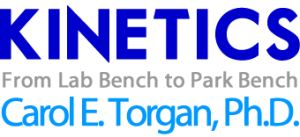
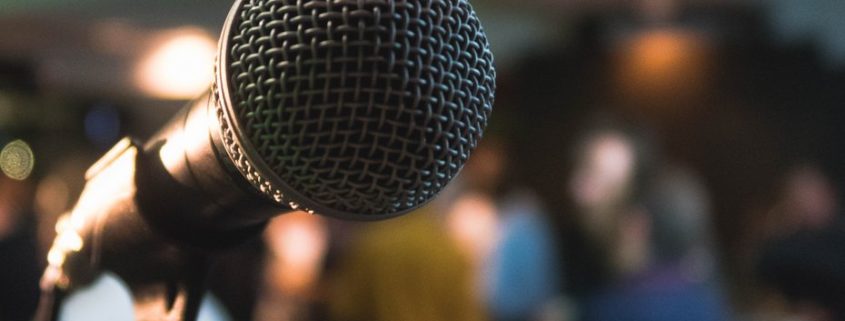
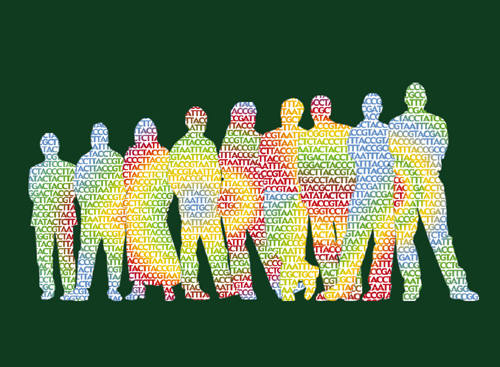


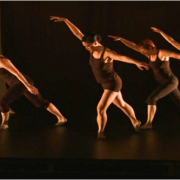

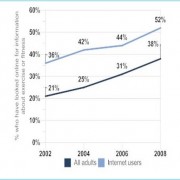
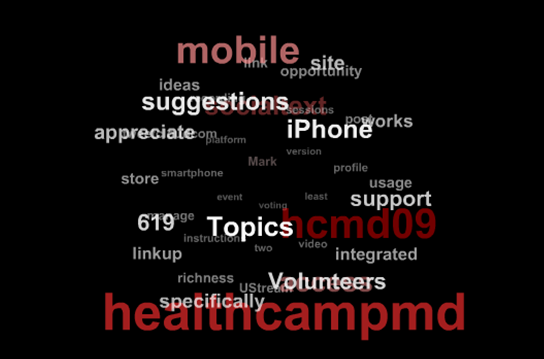



Leave a Reply
Want to join the discussion?Feel free to contribute!